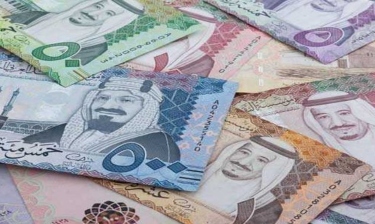Every summer the talk and focus of the domestic football world shifts from what's happening on the pitch, to which player is moving where off of it. In 2023, some of the biggest, most attention-stealing deals have involved Englishman, with Jude Bellingham arriving at Real Madrid, Harry Kane getting to his point of no return with Spurs and Declan Rice moving across London to Arsenal. However, there's no avoiding the fact that the past few months have seen an interloper, an elephant in the room, yes I mean the Saudi Pro League (SPL).
The historic powerhouses of European football remain the big draw for players, at least those that care about legacies and heritage, but we can't ignore that the Saudi money does talk. Of course this should be no surprise, out of thousands and thousands of professional male footballers there are going to be a reasonable percentage who simply cannot resist the obscene wages being offered by the SPL (if they are one of those coveted by the league). And naturally, this has been all the more evident with players over 30, who were very unlikely to receive such a significant final, life-changing pay-day anywhere else.
For many years, preceding Saudi Arabia, there have been debates about wages that have crept up and up, beyond any normal rate of inflation, especially in the Premier League and other major clubs within the UEFA remit. Most football fans have come to accept it, either because it's an argument that they cannot have any impact on, or because they simply don't care. Some will even support the financial situation as they believe that unrestricted capitalism can do no harm, but this simply isn't an accurate reflection of the economics.
Fears about the money bubble bursting for elite level football are not new, this is why we have Financial Fair Play (FFP) rules from UEFA and across the EFL there is the Club Financial Reporting Unit (CFRU). On the other hand, the gung-ho approach of the SPL this past summer has shown how susceptible the game can be to a rapidly shifting transfer market. If the Saudi clubs are allowed to continue on a path where there are no restrictions on their spending power, the football world faces a race to the bottom, where wages are driven up across the game as clubs are forced into incentivising their players to reject the SPL. With an increase in wages and agent fees etc, there will follow an inevitable impact on ticket prices, membership fees and merchandise for fans.
Defenders of the SPL will accuse the Premier League of hypocrisy, and say that it has the same dynamic with rival leagues. But the monetary strength that Premier League clubs have over La Liga, Serie A or the Bundesliga etc, is not equatable to the SPL. The transfer market undeniably remains competitive across Europe, despite the finances available in England. Whilst the Premier League has many of the best players around today, you'll still find plenty of the top one hundred footballers plying their trade in the other major leagues.
Meanwhile, the SPL are baring their teeth in a way that threatens the rest of the landscape. If they can keep upping the stakes and out-bidding the competition, despite being a league that lacks a significant heritage and, until now, much quality, then they will be reducing the beautiful game to an ugly one played by mercenaries, in front of crowds that currently average less than nine thousand per game.
Let me be clear though, I'm not saying that the SPL shouldn't be allowed to compete and to grow their league. This is not an issue, but rather it's the approach, which looks to be steeped in running before they can walk. It's not that simple, just ask the Chinese Super League or, to a lesser extent, the Indian Super League. Great wealth can lead clubs to success, but it takes more than that to create a successful domestic league.
What Does the SPL need if it's serious about being a top league?
(1) It must deliver a sustained period (decades) of quality on and off the pitch that rivals other major established leagues.
(2) The Saudi Arabia national team must benefit from the rise of the SPL, with Saudi star players being developed.
(3) The SPL should be liable to the same rules and regulations as other leagues, especially if they have aspirations to compete with them.
I'm convinced that a lot of the issues I've outlined can be solved by a world-wide salary cap in football, put in place by FIFA and enacted throughout all the confederations. It would be an opportunity to end the spiralling cost of wages and create a landscape where no one nation and league can dominate the other. Of course, there would still be economic differences in terms of what certain leagues can achieve, but it would ultimately lead to an environment where players will be left with more choices between clubs.
According to the most recently corroborated report on Premier League salaries (almost four years ago), the average wage there is £60,000 per week. As for the SPL, there’s currently no research or transparency on what 2023 has done to their average wage structure. However, if for example there was a world-wide salary cap of £100,000 a week, this would allow more clubs across the spectrum to match the power of the Premier League and SPL. The choice for footballers would become more about the competition and their sporting legacy than just who's paying the most for their services.
Before anyone raises their hand to complain about my suggested salary cap of £100,000 per week, this would mean a gross annual salary of £5.2 million before any bonuses or extra cash through sponsorships and endorsements. If any footballer was to struggle on those wages, then they should have a serious think about what their outgoings are, rather than relying on the Saudi riyal!

